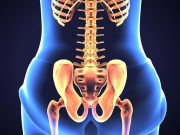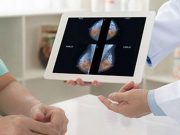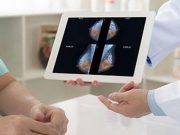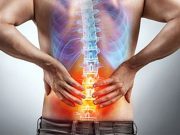Tag: Computer-Related
AI System Could Help Clinicians Assess Psoriasis Severity
Novel simplified scoring system and associated AI model could help dermatologists quickly evaluate psoriasis severity
AI Applied to Imaging May Help Clinicians Diagnose Fractures
Systematic review and meta-analysis shows comparable diagnostic performance for artificial intelligence, clinicians in fracture detection
Integration of AI Platform Can Cut Time for Chest CT Interpretation
Mean interpretation times were 22.1 percent shorter in the artificial-intelligence versus non-AI arms
Deep-Radiomics Models Can Diagnose Osteoporosis
Deep-radiomics models can use hip radiographs to diagnose osteoporosis
Many Parents OK With Use of AI to Help Treat Child With Respiratory Illness...
Black parents and younger parents more likely to express discomfort with artificial intelligence tools
AI May Help Detect Breast Cancer in Mammography Screening Program
Performance of AI system for detecting breast cancers promising in setting of large population-based mammography screening program
Most Patients Have Positive Views About AI in Medicine
However, concern expressed relating to unintended consequences, including misdiagnosis, privacy breaches, less time with clinicians
High AI-ECG-AF Risk Score Tied to Worse Cognition, Cognitive Decline
High probability of atrial fibrillation by AI-ECG-AF score correlated with cerebral infarcts on MRI
AI Model Predicts Response to Spinal Cord Stimulation for Chronic Pain
Combined unsupervised (clustering), supervised (classification) machine learning technique used to develop predictive model
AI Tool May Help Predict Risk for Pancreatic Ductal Adenocarcinoma
Model uses features in computed tomography scans of the abdomen to help identify those at high risk for developing PDAC














